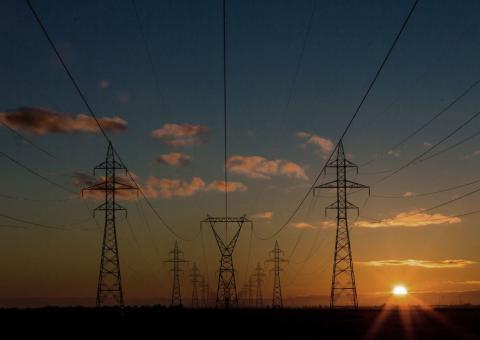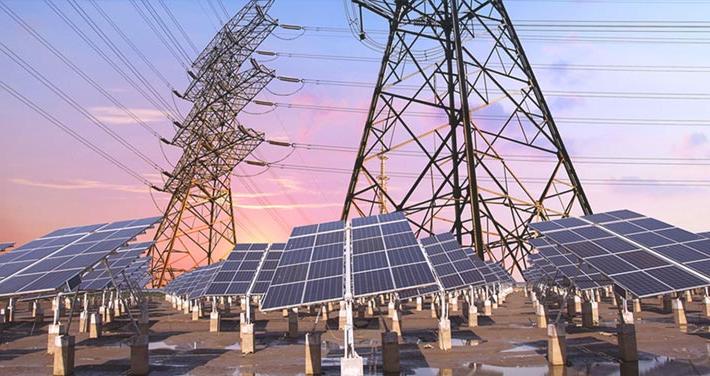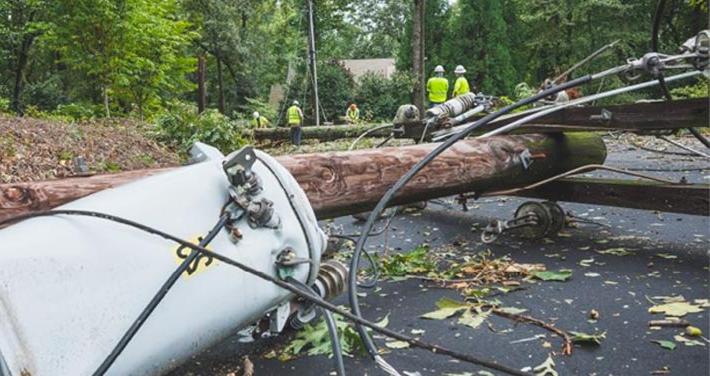直到20世纪70年代, utilities were regulated local monopolies that operated independently of one another. The lack of competition provided little incentive to improve the delivery of service or infrastructure, and New England electricity rates were among the highest in the nation. 在90年代早期, Congress and the Federal Energy Regulatory Commission (FERC) redefined the landscape of electric power infrastructure, effectively leveling the playing field for competitive markets.
成立于1997年, 新英格兰独立系统运营商 (known as ISO-New England or ISO-NE) is a not-for-profit corporation that performs three critical roles for the New England states: grid operation, 市场管理, 电力系统规划. ISO-NE serves 麻萨诸塞州, New Hampshire, Vermont, Connecticut, Rhode Island, and most of Maine. The agency’s oversight helps protect the region’s economy and the well-being of its residents by ensuring the availability of competitively priced wholesale electricity.
网格操作
总部设在霍利奥克, 麻萨诸塞州, ISO-NE oversees the day-to-day operation of the regional power grid and plays a critical role in balancing the supply and demand of electricity 24 hours a day, 一年365天. This includes dispatching generation resources to meet the real-time demand for electricity and coordinating the flow of electricity over the region's high-voltage transmission system. Because electricity cannot be effectively stored for later use and the voltage and frequency must be maintained, ISO-NE continually monitors the power grid, making adjustments in real-time to ensure the consistent flow of energy to meet customers’ needs. All New England electric utilities work closely with ISO-NE as the regional grid operator.
Forecasting New England’s electricity use is a key element to effectively operating the regional grid. ISO-NE forecasts the region’s short-term and long-term electricity needs, factoring in things like temperature predictions, 1)需求, 历史使用数据, 能源的可用性, and the likely effects of potential power system equipment failures (transformers, 发电机, 断路器, 等.).
The Northeast Blackout of 1965 shut down power for 30 million customers and marked a turning point for the region's electric power industry.
确保电网的稳定, ISO maintains an appropriate operating reserve to mitigate the effects of power station disturbances. This can include having power plants on standby, ready to produce electricity at a moment’s notice. The coordination of planned transmission and generation outages for repairs and maintenance also falls to ISO-NE, as does the analysis of the event’s probable economic effects and the dissemination of information on planned outages.
市场管理
设计, 政府, and oversight of the region’s competitive wholesale electricity market is the second important role of ISO-NE. Not only is electricity a necessity, it is also a commodity – a product that is sold. 在新英格兰, wholesale electricity is bought and sold two ways: through contracts between individual buyers and sellers, and in markets managed by the ISO that establish prices for wholesale electricity through competitive bids.
Because the ISO-NE 是独立的 agency, it has no financial ties to energy companies in the marketplace, 确保市场公平, 透明的, 和竞争. 今天, close to 500 buyers and sellers participate in the New England energy market, completing $8 billion in wholesale electricity transactions each year.
电力系统规划
Just as the dynamic management of day-to-day supply and demand is an important role for ISO-NE, so too is planning for the future needs of New England electricity consumers. Ongoing analysis and reporting are used to signal where new investments are most needed, and the ISO-NE is required to facilitate a competitive process for ensuring the development of transmission infrastructure solutions.
These assessments typically look 10 years or more into the future and take into account such things as consumption patterns and growth, 满足需求的资源是否充足, 环境要求, 以及新技术的发展.
关键的外卖
- ISO-NE 是独立的, not-for-profit corporation tasked with ensuring the availability of competitively priced wholesale electricity as the region transitions to clean energy.
- The Energy Policy Act of 1992 enabled FERC to open up national electricity transmission systems to wholesale suppliers.
- Deregulation, which allows consumers to choose their energy supplier, began four years later. Click here to read more about third-party energy suppliers.




